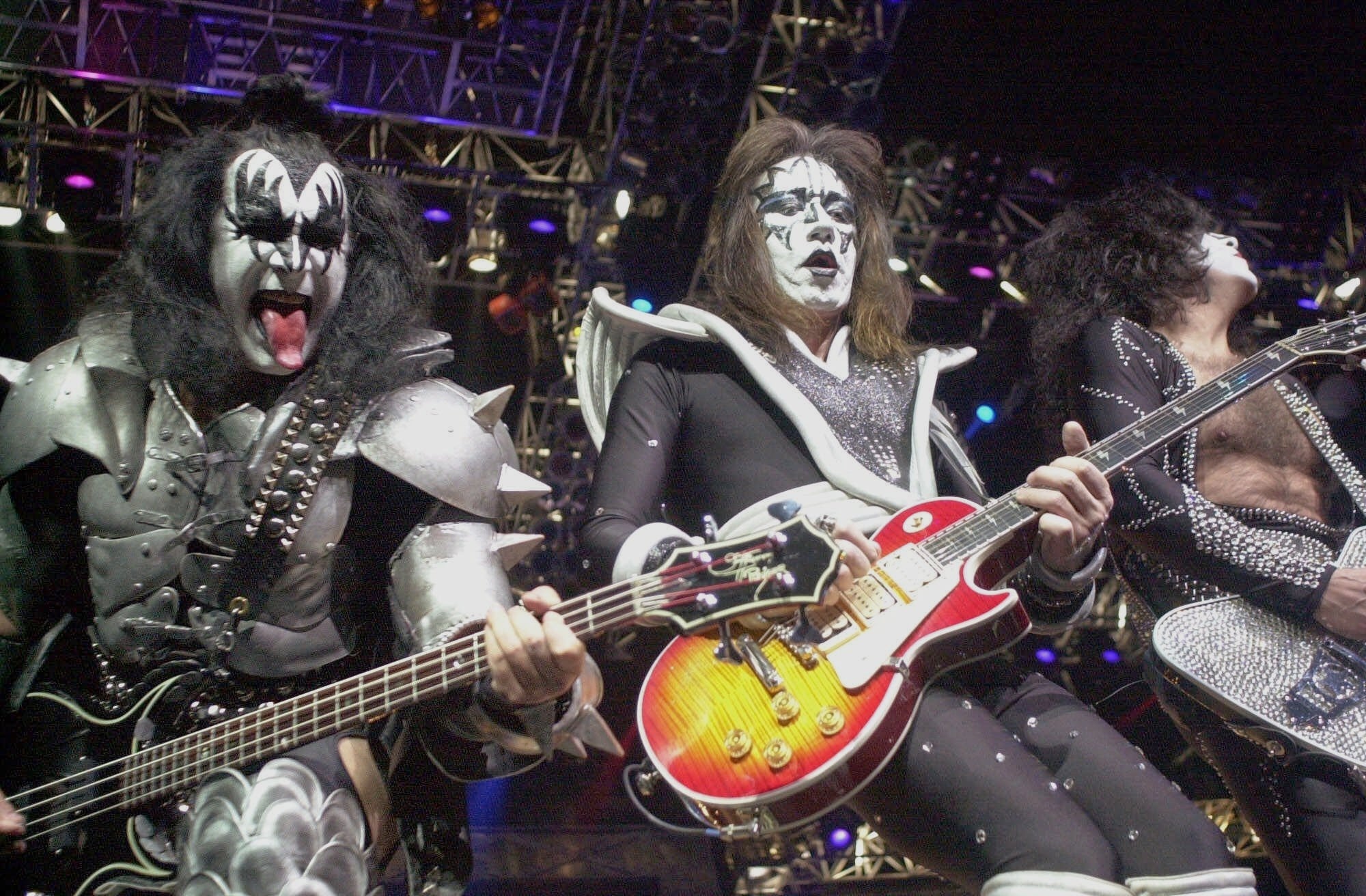Paul Daniel Frehley, the guitarist who provided fireworks to the catchy melodies of Kiss from its origins in the New York neighborhood of Queens until 1982, died this Thursday in Morriston, New Jersey, at the age of 74. Ace Frehley has entered the pantheon of honor of popular music under the nom de guerre of Spacemanthe space man, or Space Acethe space ace, for the silver stars he painted in his eyes, over the white makeup on the rest of his face, during the band’s concerts. This September he canceled the tour for the remainder of the year against his will, after being hospitalized after a fall in his studio. The reasons for the death have not been clarified, but, in a public statement, his representative has pointed to that event: “Frehley passed away peacefully surrounded by his family after a recent fall at his home.”
Rock and roll had lost its innocence. The schizophrenic mirage of the 60s gave way to a skeptical decade. The music critics of the time buried the counterculture in their columns. And among that landscape, at the opposite end of the genre, they appeared, a spectacle of pyrotechnics and makeup, artifice and theater, boastful guitars and infectious almost-disco choruses, pop camouflaged with the distortion necessary to be remembered in musical history books as hard rock.
The story of Kiss begins as the stories of music groups used to begin before the Internet: with an advertisement in the pages of the local newspaper. In 1973, bassist Gene Simmons, guitarist Paul Stanley and drummer Peter Criss placed an ad in the Village Voiceinfluential megaphone of the institutionalized New York counterculture of that time, in search of a solo guitarist with a star and skill. “Don’t waste our time,” they warned. Frehley did not. At the age of 18 he had turned as roadie by Jimi Hendrix and the experience forged his taste for evocative solos that drew on blues and psychedelia.
His mother had to bring him to that first rehearsal because the twenty-year-old Frehley, born in 1951 in the working-class Bronx, couldn’t even pay for the taxi. Over the next decade, the mother’s car was replaced by limousines, red numbers gave way to golden contracts and money accumulated in the bank after the sale of millions of records. Kiss became one of the successful faces of the booming rock and roll industry. The group never won the favor of the also nascent guild of music criticism: purists disdained it as the victory of the executives and their apolitical dividends on the spirit of rock and roll, a musical genre that a few years before had emerged as the voice of a generation that wanted to shake the foundations of society by making them dance.
Not that Kiss needed the critics, either. Their gold records led them to represent the first generation of stadium rock. Their influence, if not musical, at least commercial, can be measured today in the megalomaniacal tours of industry heavyweights like Taylor Swift. Their presentation on stage—the made-up faces, the flames of fire like propsthe endless tongues in a mocking grimace at the public—marked an era and an aesthetic, an adaptation of the transgressive transvestism of the New York Dolls to the excessive and corporate 70s.
The dream of rock and roll produces monsters and glory soon took the form of cocaine and other hard drugs and excesses. After 11 albums, studio and live albums, Frehley abruptly left Kiss in 1982, amid rumors of fights and friction with the rest of the group. “We were a heavy rock band, and suddenly we had little kids with lunch boxes and dolls in the front row, and I had to worry about not swearing on the bus. It became a circus,” he confessed to Rolling Stone four decades after his departure. “I thought if I stayed in that group, I would end up killing myself. When I was driving home from the studio, I wanted to crash the car into a tree. I gave up a $15 million contract. That would be like $100 million today. And my lawyer was looking at me like, ‘Are you crazy?'”
After leaving, Frehley recorded a handful of solo albums that never came close to the commercial success of Kiss. In the ’90s and ’00s he returned with his old bandmates on nostalgic reunion tours that continued to anger critics and fill stadiums around the world. In 2014, the founding members of Kiss—Frehley, Simmons, Stanley and Criss—were honored with induction into the Rock & Roll Hall of Fame.
In one of his last interviews for the magazine Believe In 2023, Frehley already left a kind of epitaph that summarized the band’s career: “Even though Paul (Stanley) and I had our disagreements, I still love him. Together we founded the largest theatrical rock group in the world. Today I was talking to Peter (Criss) and he said to me: ‘Ace, people are going to still be listening to our records in 50 years’. I replied: ‘I know. After we are dead and buried.”

